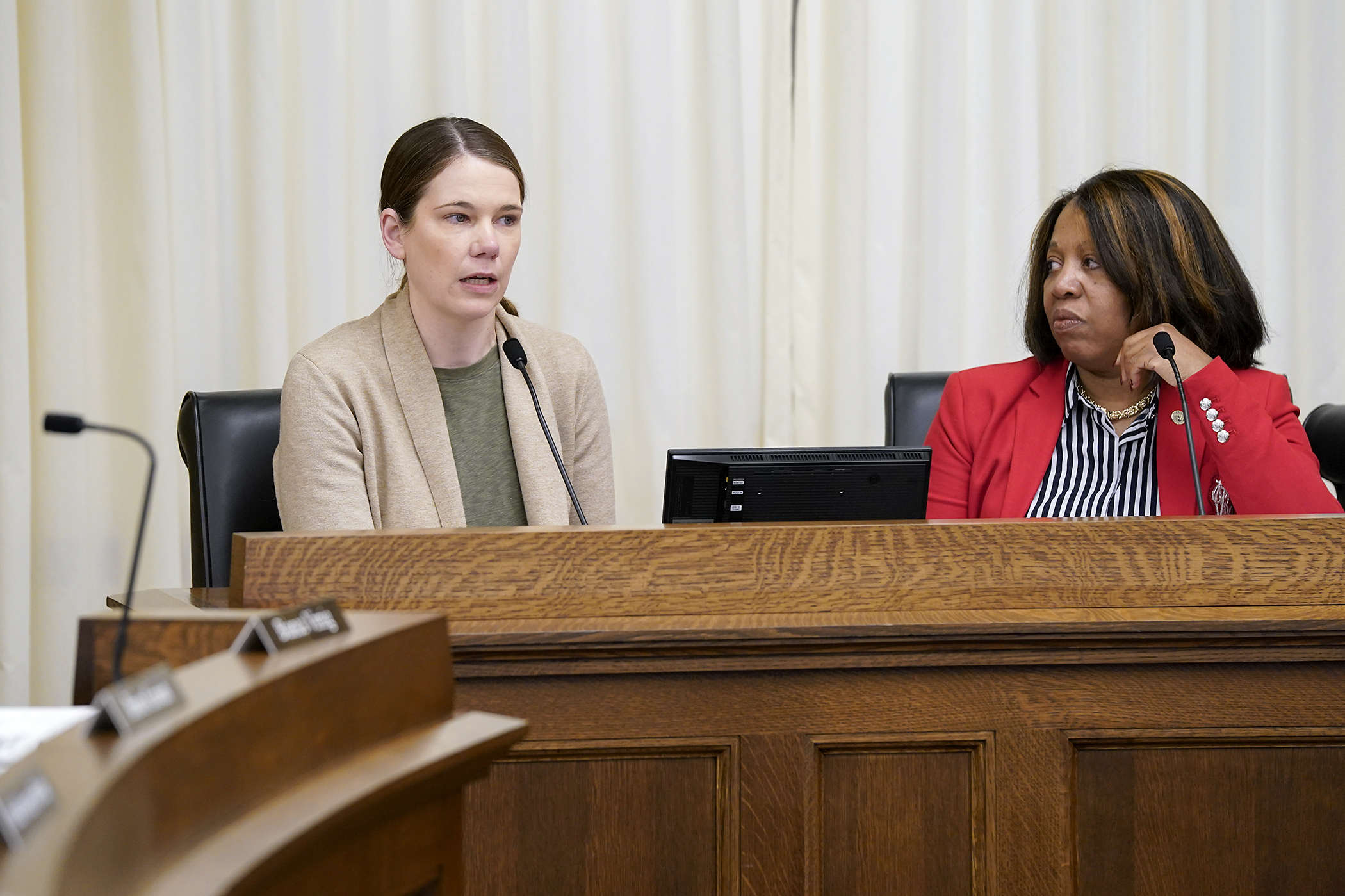Education vs. punishment at crux of bill that could modify home- and community-based services

Sometimes a punishment outweighs the violation, especially if it’s minor.
Trying to help home- and community-based services from committing minor violations, the House Human Services Finance and Policy Committee laid over HF1215, as amended, Wednesday for possible omnibus bill inclusion.
Rather than penalizing humans for their mistakes, it would offer multiple opportunities to improve and make corrections, said Rep. Mary Frances Clardy (DFL-Inver Grove Heights), the bill sponsor. “This bill is about prioritizing and focusing on obviously limited resources with our regulators at the DHS.”
The Department of Human Services would be required to provide compliance education to home- and community-based service licensees, conduct initial compliance monitoring for new licensees and issue licensing review reports, and provide technical assistance and legal referrals upon request.
Sara Grafstrom, senior director of state and federal policy for the Association of Residential Resources in Minnesota, said the proactive approach will empower providers.
“The proposed requirement for licensing compliance education will equip new and existing license holders with clear and accessible resources to understand and maintain compliance with licensing requirements,” she said.
The bill also would require a warning before a conditional license is issued to a license holder, allow for reduced time of a conditional license under certain conditions, offer mediation for license holders if a reconsideration request is denied, require a legislative report on correction orders and conditional licenses, and repeal additional licensing procedures.
“For small providers a conditional license can be devastating not because they don't want to comply but because the system lacks clear, standardized pathways to compliance,” said Zahnia Harut, board chair of Residential Providers Association of Minnesota. “When enforcement is inconsistent and punitive it does not improve care, instead it strains resources, discourages new providers from entering into the field, and it creates instability for the very people that we're all here to serve.”
Related Articles
Search Session Daily
Advanced Search OptionsPriority Dailies
Legislative leaders set 2026 committee deadlines
By Lisa Kaczke Legislative leaders on Tuesday officially set the timeline for getting bills through the committee process during the upcoming 2026 session.
Here are the three deadlines for...
Legislative leaders on Tuesday officially set the timeline for getting bills through the committee process during the upcoming 2026 session.
Here are the three deadlines for...
Latest budget forecast projects nearly $2.5 billion surplus, but red ink down the road
By Mike Cook Three weeks before Christmas, state budget officials provided some merriment to Minnesotans. However, Grinch-like transformations lurk.
Released Thursday, the November ...
Three weeks before Christmas, state budget officials provided some merriment to Minnesotans. However, Grinch-like transformations lurk.
Released Thursday, the November ...